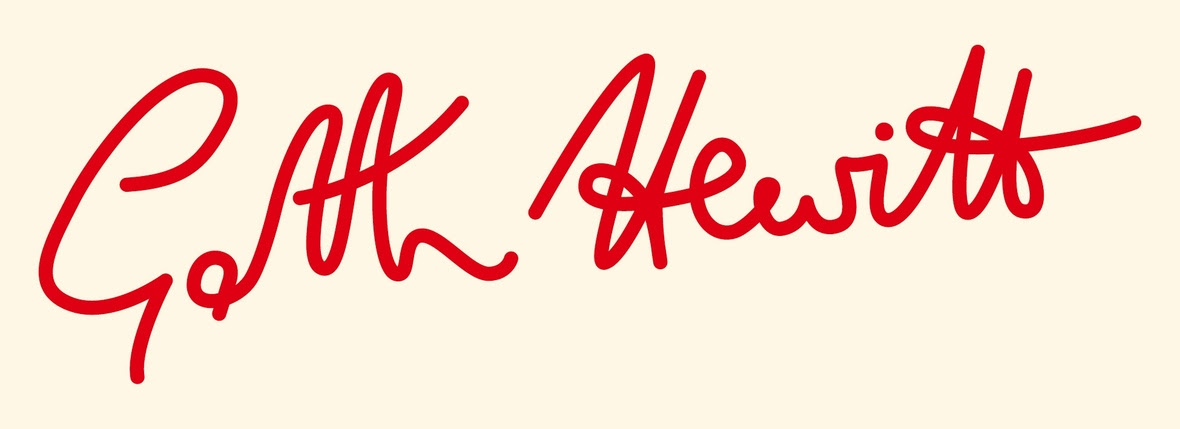August 2019
Apologies for the sudden disappearance of Crisis but we’re back after a difficult time. Thanks for still being there!
Crisis is self funded by Tony Jasper and all material is his unless otherwise noted. In general terms Crisis aims to provide comment and analysis of Various art and media forms from a Christian perspective. For details and contact go via Jasperian Theatre Company.
REVIEWS
BOOKS
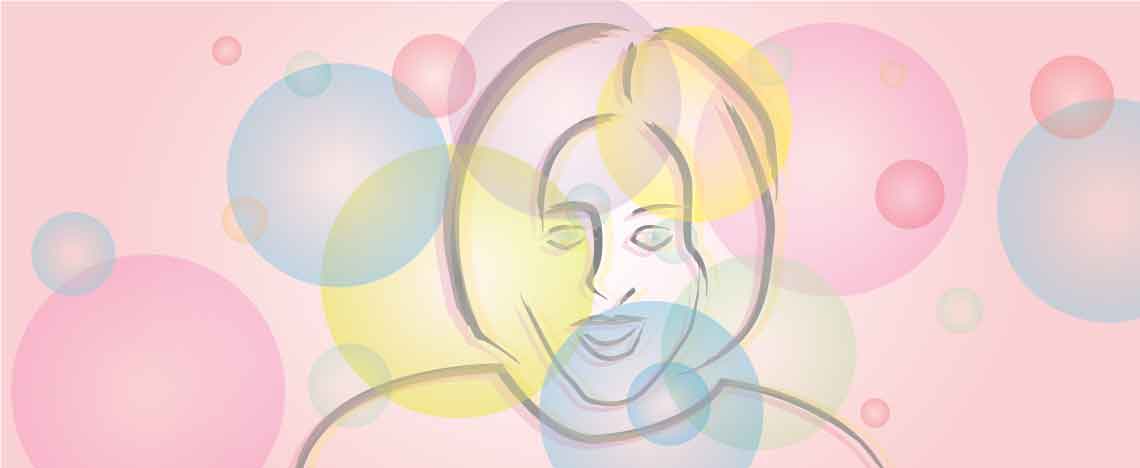
BOOK 1 AIRHEAD EMILY MAITLIS
In style, Newsnight’s new lead inquisitor, former Cambridge English student Emily Maitlis succeeds in making you feel as though both of you are ‘taking tea’ for she writes in such intimate fashion.
In-fact it would not be too difficult to simulate in your mind such a desired scenario, for as you turn the pages of her so readable Airhead- The Imperfect Art of Making News (Michael Joseph. £18.99) in your local small patissiere mid-afternoon, waving away another plate of cucumber sandwiches but accepting delicate chocolate – eclairs, cautiously pouring tea lest you make a spill on the make-believe cotton tablecloth, you will be heard to laugh often as Emily’s so innocent tossing of words keeps hitting the bulls – eye. It is easy to imagine she is endlessly leaning toward you, ensuring no one near is listening, and delivering another tasty verbal. The two of us will laugh uproarously and suffer frowning from those at near side tables who prefer cold silence as they butter their tea-cakes with infinite precision to ensure every bit of the small portion of butter is used, even to carefully inspecting the wrapper.
There you are, and Emily is telling of her meeting with the famous; who will include the Dalai Lama, Bill Clinton, Tony Blair, Piers Morgan, (touchingly and amusingly described in a chapter heading as Piers Morgan becomes a Feminist) Jon Stewart, Sheryl Sandberg of Facebook, Zekda Perkins – Personal Assistant to Harvey Weinstein, Sean Spice, Gordon Ramsey. James Comey, Anthony Scaramucci, and the man who doubtless will feel warm pleasure that he is the first subject, indeed Donald John Trump. Before presidency, he is the successful man who summons one and all to the twenty-sixth floor of Trump Tower by golden escalator. Emily has met the U.S. President a few times and regrets “I never called him out on the lies he told.” Later she says:”No one lasts long in the Trump administration, they’ve learnt to take selfies while they can.”
While Emily has delightful anectdotes it would wrong to suggest that this text is no more than amusing and harmless reflection. The serious can intrude for here she is writing on Donald T: “Looking into his face right then I couldn’t imagine anyone who would want it more. He believes in the office of president – still thinks it can change the world.”
In terms of this paper you might wish she chased him on “prosperity faith” and its influence in White House territory, but religion ‘per se’ is not her interest. Still she does meet with James
Comey, lawyer and a Christian, who said: “It’s hard enough to talk to the president-elect and use the words prostitutes” and “Moscow hotel room.” Comey seems safe enough, less so others, for Trump is not the only one in the White House who might read scripture prophecy into the present and allow it to affect policy toward the Middle East. She does meet Steve Bannon, right-wing US Christian evangelical, one-time confidante to the Chief. “Everything I’d heard and read about him suggested an arch-manipulator. A man whose greatest thrill was to see a kind of chaos – his chaos take hold of the world.” At the same time “Bannon was pivotal to the greatest shakedown in American history.”During her interview, Emily finds herself: in a little difficulty: ”My head is working out where to go. But my mouth is already ahead of me.”
The last quote leads me into saying that this book is far more than Emily meets whoever, for there is another fascinating journey, as the sub-title of the book suggests. Emily is concerned that we should know how news comes together, decisions made, be conversant with the ability to tackle and comment, all of which requires her skill, and others on Newsnight. She informs that sometimes there are just minutes, occasionally none, to describe, maybe interview, summarise. It has to work without question that there is a line feed to London and that spot is. There is no room for missing. Easily with so much organization, and depending on so many people employed throughout a turbulent globe, things can just happen, and she can learn in the middle of happy family time with husband, two boys and a large whippet there is a plane that is booked to leave in a few hours for somewhere in Africa. Yes, there has to be a ready-take-run bag of necessities! There is also Emily the woman who living near the dreadful Grenfell disaster lets us into the raging dilemmas fighting within, and when at the scene. “Grenfell made me ask a larger question of my job that day: how much of you goes in – and how much should be left at the door?”. And then “Two days after Grenfell I would interview the prime minister with a pain and ferocity I never knew I had.”
Emily is of course a considerable distance in time from the Cambridge undergraduate. Much has happened in her life and media credits. And so it is on page 285 the chapter heading is ‘After Twenty-Seven Years’ that she reflects and does let us into the horror of being stalked. In broadcasting terms she outlines the present horror of social media and the demand of hyper-rapid shared response. On the last page, 334, the final words almost a testimony – ‘Airhead is homage to the jumble of noise, the whistle of silence, the blind panic and the ecstasy of adrenalin when the camera starts rolling – and it’s all falling apart.” Lovely book. Good company is Emily.
BOOK 2 MARIE COLVIN

Here I am on a sunny morning, with St. Michael’s Mount in my vision. I am ploughing my way through In Extremis- The Life of War Correspondent Marie Colvin by Lindsey Hilsum (Chatto & Windus. £20).
It’s a disturbing read. She gives flesh to the famous war photographer, Robert Capa’s maxim, ‘If your pictures aren’t good enough, you’re not close enough.’ It says much about this remarkable woman, who never fled from safety, who cheated death so constantly that it seemed as if perhaps it didn’t exist - perhaps she believed until one fateful day.
This book tells those who will hear and see, that somewhere, some place, as we sing with sweetness ‘All things right and Beautiful,’ elsewhere, and continually, God’s world is scarred and bloodied, mostly by men, but the guns have to be laid down because...........conversely this extraordinary woman like other less known journalists tells the world of how “militiamen would shout across the front line that they were going to starve the camp and then storm in and slaughter everyone.” They were there.
Telling us.
I am learning life late – at least when taken by Lindsey Hilsum’s brilliant text into many of the horrors that humankind has managed. I, to, in past, have chased stories, fought for front and middle pages, but kid’s play, almost insulting to be mentioned, compared with Ms Colvin’s adventures that also included another storyline – her fiery exhausting tendancy to set in motion a search and sometimes finding deep personal relationships, established briefly, sometimes longer, amidst life’s uncertainty. Amidst her desire to ‘get the story’ there was a continual desire to find the right man, the all-consuming love, to have children. Even that in its chase mixed with Marie’s desire for drama and excitement, as if theatrics made for a life less ordinary.
We read of her ‘love’ moment for Patrick, whom she would marry and who seemingly played out sometime “Catholic ritual: sin, remorse, confession, repentance and redemption.” At St Dominic C hurch, 0yster Bay, on 19 August 1989 they would marry. She was thirty three; he was thirty-six. A few years on “on the bus out of Baghdad, Marie overheard a French journalist talking about a lover, and she realised this lover was her own husband, Patrick.”
She was as Hillsum writes:”a young Western woman blown in from the world beyond the seige.” It may be Beirut - “It is the women who are dying and it was women who tired of men’s inaction.”
It is paramount that somehow there is some kind of hope, otherwise total despair to numb the senses as she is one day taken to“the edge of a bomb crater, skirting open sewers and broken water pipes, passing children playing in the rubble, old men in chequered keffiyeh headdresses and stalls selling a few miserable vegetables.” Just one of many sights to see and forcibly hide the tears.
She had contact with many of the major players in the Middle East, not least Arafat. “When Arafat got married, those around him reacted ‘with the jealousy of lovers’, as Marie observed their male world was disrupted for Arafat had actually publicly acknowedged a woman.’ So to she had contact with Gaddafi. It was a time when journalists never knew if they were going to be feted, detained or expelled, sometimes just drinking and talking with the hard men of the PL0. Life could from afar seem friendly, here was a young teenage guide taking her fifteen miles through the mountains. He carried a grenade in his pocket for protection,
Eventually she would receive major press awards and in one citation, a Mike Wallace, a senior reporter for CBS, would say:”Colvin’s stores are vivid because there’s no distance between her and those she covers. Marie is brave but it’s bravery with a purpose.”
Marie Colvin, who lost an eye in one conflicit while reporting, is instanced saying, “Getting at the truth is why we all entered journalism. We have to bear witness. We can make a difference.” This almost mantra is for hearing at a time when today certain politicians, even in the so-called “Free world” and beyond, wish only for coverage that suits their own agenda and self-aggrandisment. Journalists are being killed on assignment. And, yes, she was one. The events to and which led to her death occupy more tha 40 pages. Lindsay Hilsum says her death marked the moment that war corresponding became unacceptably dangerous to many editors and journalists.
At her funeral it was a verse from Paul’s book to Timothy that was heard by the international gathering of those who came in tears and yet gratitude to have known such a person:
As for me life is already being poured as a libation, and the time has come for me to be gone. I have fought the good fight to the end’ I have run the race to the finish; I have kept the faith.
Pipers played “Amazing Grace”, “the mourners stepped out into the sunlight where a knot of Tamils stood silently holding placards and giving out leaflets. “Yesterday you lost your eye for Sri Lankan Tamils and gave vision to the blind world,’ read one.”
This is a remarkable book, deeply moving, disturbing in its sometime intensity. Just go and read, and be prepared to be assaulted, such is the power of Lindsey Hilsum’s book. She is Channel 4 News International Editor.
BOOK 3 Ben Okri ‘The Freedom Artist’ with a sub-title Who is the Prisoner?’ (Head Zeus)

Rudely awakening to anyone we have The New York Times (June 6) sharing the cries of Chinese publishers that they are afraid to continue doing business. Distributors are also afraid. Bookstores are diminishing, people are also afraid, too. So are buyers. Yaqui Wang, a Chinese researcher for Human Rights Watch simply says: “It’s an attack on the publishing industry from all aspects.”
Strangely, at the same time I am reading the latest text from the brilliant Ben Okri ‘The Freedom Artist’ with a sub-title Who is the Prisoner?’ that will not find its way into the Chinese mainstream, nor for that matter in a score of countries. Here is a book that shouts “Freedom’ from every page, yet, if the ‘mind police’ go hunting and scouring shelves, Okri’s text keeps insisting, somewhere someplace, the ’text’ of many of the world’s classics lives, even if no more than patches of memory to be passed on in secret, by grey haired old men, albeit , at life’s risk, trusting the receiver.
In his overall story-line 0kri brings forward this not - unfamiliar 21st world where the authorities attempt to supress subversive ideas.” As with the Chinese authorites and elswhere large numbers of books are confiscated with publishers and booksellers imprisoned. All forms of printing are destroyed. These versions of the founding myths were burnt in public squares. People were forbidden to read them, under punishment of death.” He sees a change in the quality of language. “Words like ‘hope’, ‘rights’, ‘truth’ said with fear of arrest. “Anyone using the word ‘ freedom’ was suspected of harbouring dangerous intentions.”
Okri sees a world of people through years of living and dying who know only state controlled mind prisons , the consequence of those who “seemed absent when present. But they were present when absent.” To be true some citizens enjoy the mind prison, they prefer to do as desired by the controlling department of state. Home comforts may score over the world of words. Still, is it not so that many of us imprison ourselves, each of us in varying degrees does not wish to become the person he is, or is frightened by the inner drive that would take us into uncharted and perhaps dangerous waters? All this said, amazingly, almost curiously, beyond immediate reason, that spiritual qualities can grow from negative situations of aggression, hopelessness and pain.
Okri for the most part delivers his almost sermon in short sharp fragments, a page or two on a chosen reflection, each numbered, with division under ‘Book One’ until the sixth and a coda where he writes: “In the oldest legends of the land, it is known that all are born in prison. In the new reality, all are born into a story. It is a story which everyone creates, and which everyone lives, with darkness or with light, in freedom.”
Okri introduces us to a boy named Mirababa who asks questions and an old man who tells him: “One day, my boy, you must take a leap into the unknown and discover what has been hidden from us.” He introduces us to a young woman called Amalantis. She is arrested for asking a question – her question is “Who is the prisoner?” Her lover Kamal looks for her and in so doing encounters the question many times in a miriad of experiences and observation
In a sense there is nothing especially new in the overall story from which this work stems. It is simply becoming more importamt. It reminds me of younger days, when I was willingly, even thrillingly , (for look, I still remember) mind innoculated by healthy doses of Teaching As A Subversive Activity by Neil Postman and Charles Weingartner. Alongside this exciting text, there was another impressionable book – Future Shock by Alvin Toffler in which among other things he was asking what it means to be human. And I remember the quote I gave at the beginning of this review.
Admittedly 0kri is far from the only one who sees the danger of a society, a world even, either by order or choice, ruled by the ‘thought’ police and these not necessarily in state and martial uniform, for as he puts it on page 19 they may come dressed identically in grey suits and ties. There is the feared time, p38-9, when there is a campaign against the “question-askers’, and the ‘brighter’ minds in the Hierarchy ensure a spirit of productive obedience. New myths, new tales are welcomed but they serve the prevailing ideal. The church (p61) subtly alters its doctrines, the “Churches grew emptier. Services were held to empty pews.” Literacy vanishes, people stop reading, or, at least only the simplest is in view, bookshops have long ceased, while independent thought is for hidden places. The old stories are preserved in secret. This is Orwellian society. It could be the future, but then in some countries it is the present. It is the recent past. It was in 1984 when faber and faber published the George Theiner edited, ‘They Shoot Writers, Don’t They?’ with its text of societies where words can cost lives, and to the stage come the likes of Salman Rushdie, Tom Stoppard, Abdre Brink, Mario Vargas Llosa. Here we are nearly 40 years later with Ben Okri treading something of the same path.
At times he breaks into dialogue as for instance the day when the authorities who had watched the house called with pertinent questions from
“Do you know if she is part of any groups trying to destabalise society?” – to “Do you know if she is in league with any powers from another planet, another galaxy?’ Smile not, those who repress will try any reason, and who knows, one day.
What though if a person’s soul is stolen or simply numbed, and molded to what the state requires ?
MUSIC
Aretha and Mavis Staples
So have you seen the amazing film on Aretha Franklin – Amazing Grace? If yes, next to that on the continuing ‘must do’ list is purchasing the newly assembled record set Amazing Grace – The Complete Recordings (Atlantic). The original’ 1972 release had 13 power-housed gospel shouts. Now extended, there are 27 tracks, speeches and sermons, all laid down over two nights at the New Temple Missionary Baptist Church, Los Angeles. This is ageless gospel, sanctified music, with a vocal supremo, a spirit-filled choir that roars behind the woman who at this time could almost literally shift a mountain. Feeling low in the faith? just hear this. You will be off your seat – play it loud of course.
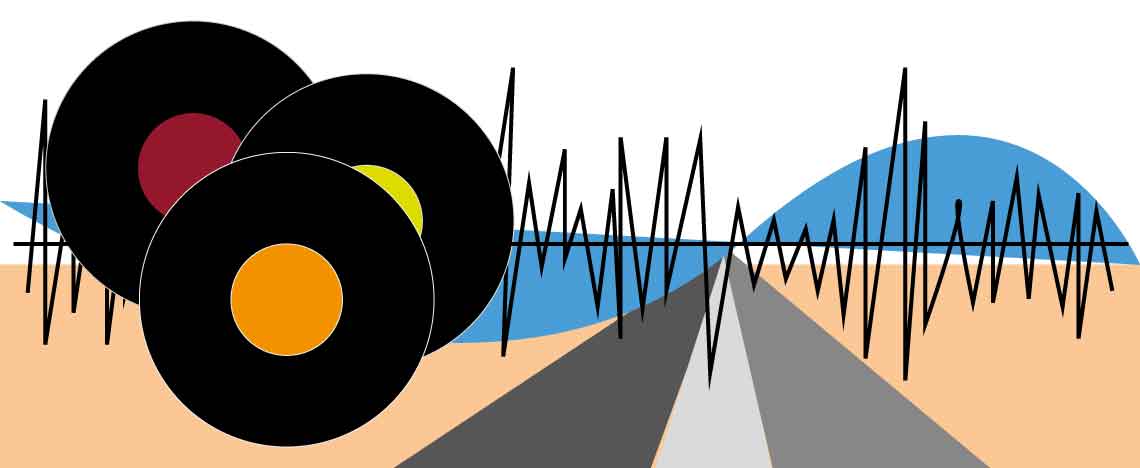
Talking of Aretha’s film brings to mind another current release, although not a religious script, and this is Asbury Park: Riot, Redemption, Rock ‘n’ Roll. It does travel a mix of social history and includes interviews with Bruce Springsteen. And, yes, on cue, Brucie has a new album entitled, Western Stars (Columbia), one which could well shock you if you happen to be an ardent follower of this exraordinary musician, and whose songs often reflect his religious faith, let alone reading of current US history. No E-Street band roaring away, mostly just the man on guitar, and, well, an orchestra! Sweeping arrangments come a –soaring that for those of age might remind of old cowboy soundtracks. No, it’s not Brucie following Rod Stewart and finding his way through the great American songbook, but it is different. Still, for all the unusual there is a fine songwriter, a vocalist who demands listening and lyrics to more than interest. For him its uncharted territory, but as he sings on ‘Hitchhikin’ the opening cut, “Maps don’t do much for me, my friend.” Faith has wavered but here there is renewal. As usual, he reminiscences, takes you on past memories, with one of the most moving reflections in the song ‘ Chasin’ Wild Horses.’ Perhaps ‘Moodlight Motel’ is not for listening should you feel downbeat. The CD comes with a splendid 20 page insert with pics and lyrics and credits. It’ a classic with so much wonder from this so talented American, even with the strings, but then the arrangements are top class.
As the well worn comment of Londoners says “you wait ages for a bus and then two come together,’ well, here we are with another powerful album from Mavis Staples that runs so soon after the ‘live’ recording of her recent London visit. 80 this month (July) she’s been having dollops of new life when it comes to recording, in-part because she has gone and found young record producers who have lifted her to even greater heights. This time around it’s Ben Harper who is known for an eclectic mix of blues, folk soul, gospel and is half her age. The album ‘We Get By’ lays down a nifty beat that doesn’t drown this wondrous artist. Harper is quoted saying:” When she walks in the studio, you’d best be ready, because she is...she has more energy than anyone else.” Mavis has a big voice, firm and sure, hitting the lower vocal region. On this album she is mic’d so close that you catch her breath. Gospel grace and protest soul have been her way, and the past is vividly seen on the album cover that has six young black girls staring through a metal fence at a lush playground, but segregation means just looking. She tells Mojo writer Geoff Brown:” It reminded me of my sisters and I. We used to stand outside, we couldn’t go swimming, we couldn’t go in the park.” This singer who sang at the Kennedy, Clinton and Carter inaugarations reminds of difficult times for black artists .Her long life also means painful recollection, and more so, now, as friends depart this life. She brings to the fore issues that now inflict the American nation, although in relatively generalised terms. She simply sings on the opener ‘Change’ in utter plainess of expression, “things gotta change around here”.
Should you wish to find a more old-gospel album of hers but with a more modern influence then make your way to ‘One True Vine,’ and for younger times with the excellent Staple Singers, ‘I’ll Take You there,’(also the title of her all-star concert celebration from 2014) plus two Vee-Jay releases, Uncloudy Day’ and ‘ Swing Low.’ In times past the Rolling Stones were among those who raided the Staple catalogue as they and others at the time realised the sheer music delights of R&B.
For the recent Mavis take in albums such as ‘Livin’ On A High Note,’ ‘Have A Little Faith,’ ‘ You Are Not Alone’ and the ten new powerful songs with Jeff Tweedy, ‘If All I Was Was Black.;
THEATRE QUOTES
Phoebe (Waller-Bridge) said:”I’ve just written another bit for you.” That time, I said (shouting) “OK, yes!” it’s a huge pleasure. I’m delighted to be in touch with the young crowd!
Fiona S haw, The Observer. The New Review, March 3, 2019. P 12.3
I feel like I’m cheating if I don’t find out how a character showers’.
Tom Mothersdale. The Stage, April 4. 2019. P 34.
I tend to get these dark, troubled roles.
Maybe it’s my face again,
Kelly Macdonald. The New Review, The Observer, April 7, 2019. P7
You play lots of leading ladies, and then you’re playing a lot of mothers.
Emily Watson, FT Weekend. Arts. April 13. 2019. P 12.
Eddie Redmayne is an incredible actor and a lovely guy. But I just find it frustrating that if you havent got funds, you haven’t got the same opportunites.
All actors are fighting the same battle but if you’re born into mony it is easier.
Vicky McClure. The Times, April 13. 2019. P 19.
They can put clothes on you – but then you gotta wear ‘em.
Chadwick Boseman .New York Times International January 7. 2019. P14.
I like being over the hill because I’ve discovered a whole new landscape. I’m fond of age. I’m glad I’ve lived so long.
Jane Fonda, British Vogue with Vogue, May. 2019. P 64.
Actors not taking roles because they are not this or that is not what the profession is about..I am an actor. I should be able to play anything.
Richard Madden (playing a gay role in Rocketman), Vogue, May 2019. P 173.
If your expectation is, “I’m going to be shit because I have no idea what I’m doing, then you’re always pleasantly surprised. Always have the lowest expectations possible.”
Robert Patterson, FT Weekend, April 27. 2019. P 13.
I would go on stage feeling like a match carelessly tossed into a bunch of fireworks
Tony Slattery, Guardian, G2 . p 9.April29. 2019.
Celebrity does wonders for the box office, but it can be an impediment. Heretical though it sounds, a lesser known actress migjt have made me believe more in the character on stage.
Quentin Letts, Sunday Times. Culture April 21. 2019. P 23. (on the great Maggie Smith, her role as Jospeh Goebbels’s secretary. A German Life (Bridge).
There’s something about being close to actors when they are discovering it for the first time – you make eye contact. The smells you get when your’e cooking food are somewhat richer than the smell when the dish is done.
Rufus Norris, Sunday Times Culture. April 21. 2019. P 21.
There is no better place to see a show than in the rehearsal room.
Rufus Norris, Sunday Times, Culure. April 21. 2019. P 20.
It is about cross-generational conversations about Afrian masculinity and how that is compromised by the West.
Inua Ellam, Western Morning News, West magazine, April 27. 2019. P36.
That’s the gift characters give you. A dimension of yourself that you never had before.
Chadwick Boseman. New York Times International. January 7. 2019. P 14.
It’s as universal as Hamlet or Hedda Gabbler, or whatever you wish. It goes way beyond gender and certainly way beyond sexuality.
Deborah Warner on Billy Budd. The Stage. April 18. 2019. P 14.
The more complex the character , the better. Sio I have an illegal ampount of fun playing Priscilla or Lindsay Denton, or anyone. You explore it – and that’s when it gets really exciting.
Keeley Hawes. I paper. May 8. 2019. P 35
It got to me a lot because there’s just a constant feed in your back pocket of what people think of you.
Maisie Williams (on the impact of Social Media) Guardian May 13. 2019. P 26.
I love acting. It’s my bliss. I appreciate it differently now because I’ve figured how to bring the peace I have in my personal life into my professional life. It’s not the same chaos, because I’ve learnt what I can take on and when it’s too much.
Rene Zellweger. I paper, May 24, 2019. P 24.
After seeing my performance, Alan (Rickman) told me I needed to imagne Isabella` was wearing six-inch stilettos under her habit. And I realised he was right: inside everybody there can be a counterpart. You may think you’ve got your number – but actually you’re not who you think you are.
Julie Stevenson, The Lady. 17 May-6 June, 2019 p 20
I don’t like being half-arsed about things.
Michael Sheen. The Observer magazine. May 26. 2019. P 21.
These days the former body builder is more a butternet squash in a tote bag: chunky, but not outsized.
Henry Mance on Arnold Schwarzenegger. FT Weekend, May 25/6, 2019. P 3.
What is 50? It sure as heck isn’t what I saw as 50 when I was 25. I mean, I still say` “sir’ or “ma-am” to peole I think are older than me and they are 14 or 15 years younger.
Matthew McConaughey. Red magazine, March 2019. P 50.
I think you have to have very forgiving patient people in your life, who understand that sometimes you’ll suddenly have to leave in three days.
Elizabeth Debicki, Style, The Sunday Times. April 16. 2019. P 26.
The moment you realise that someone has a sense of humour, and what kind, you feel like you know them.
Phoebe Waller-Bridge. GQ. July 2010.p147.
I always had a sense of a kind of relationship with God that was my rock.
Kelsey Grammer, Sunday Times, Culture, March 3, 2019. P 4.
I would prefer that we actually go in a direction of producing and creating more jobs for women in the film industry as opposed to talking about it.
Emily Blunt, Vogue, November 2019. P 182.
(I don’t remember having dark thoughts when I was young) 89888In some way without religion or therapy, people are hoarding their fantasy life, and Killing Eve somehow gives vent to it without being crude.
Fiona Shaw, Saturday Review, The Times, June 1. 2019. P5.
People love it when the androgny is a man becoming a woman, but don’t have the same kind of reverence or desire for it when it’s a woman embodying her masculine side. I’d like to go into that.
Michelle Williams. Elle, March 2019. P.164.
Use it as fuel to discover what really matters to you.
Isabella Rossellini (responding to the question of ‘How do you cope with rejection?) Vogue, July 2019 p. 228
We respond to what people love, rathr than gender and demographics, and we want to see a broader version of what women can be behind and in front of the camera.
Anne Mensah,(Netflix) FT, Lfe & Arts, June 15/16, 2019. Front page.
It was extragavant but it’s an extravagance we all understand, from watching music videos and reading fashion magazines. Celebrities wear this stuff to the Met Gala. It’s in the realms of reality.
Evie Gurney speaking about her costumes for Anthony and Cleopatra. FT 15.16 June, 2019. P 6.
The costumes are there to support the story telling. I don’t want them to feel noticeably extravagant.
Evie Gurney. FT, June 15/16 June. 2019. P 6.
I don’t mind doing things free for charity, but when it’s a conference at which people are paying a grand to attend and they cant afford to ay their speakers, I do think:”You might want to look at your botom line, mate.”
Jack Monroe, Observer Magazine, June 16, 2019. P8
Male actors are never asked, “How do you do it all? When are you going to have a baby? Are you ready5? People don’t assume it’s part of their decision matrix.’
Allison Williams
I got to some very dark points where I remember praying to God, please get me through this day, just to get through one more day.
Peter Andre (speaking about depression) G2, The Guardian, June 17, 2019. P 8.
Jennifer Jason Leigh once said to me: “ Even if you don’t understand the script or what’s going on, if you love the director, just jump, because they’re going to do something right.”
Said to Martha Hayes, by Anya Taylor-Joy, Maire Claire, May 2-19. P 115.
Here’s the thing: any religious infuence that has an anti - LGBQ element leads to serious suffering. I’ve seen the pain it causes. Religion has been used to justify so many horrors – it can’t be used to justify treating LGBTQ people as second-class citizens.
Ellen Page
I’m extremly interested in the complexities of femininity. So yes, it’s an attempt to break rules and create a new language, just like Virginia did when she wrote Orlando.
Chanya Button (the director’s ambitious drama with Gemma Arterton, Vita and Virginia revolving around the passionate Bloomsbury affair, leading to the creation of the gender, and genre-changing novel Orlando.” – Claire Armitstead. The Guardian, Film & Music, June 28, 2019. P 8.
I have to choose things that I know will challenge me. I mean really frighten me. I’m still at a place where, if I read something and it doesn’t shake me up, I’m slightly like, ‘Well, do I need this?’ It means you’re on your toes, you’re challenged, you’re living off your wits and you have to back yourself.
David Morrissey, The Stage, June 27. 2019. P13.
I want to make the most extreme production possibke always, I don’t wish to give in to the wish or desire of the audience.
Ivo Van Hove.I paper, July 9. 2019. P 37.
When you get a battle of the egos, it feels so anti-art to me.
James McArdle,Culture, Sunday imes, June 30. 2019. P 2
“Then, of course, I see m yself, I see myself on screen, and I’m horrified.” She laughs. “I think, Why te hell did I not care ab out my ooks?”
Alex Kingsto, Culture, Sundy Times, February 10. 2019. P9.
I’ve learnt that I have to turn down jobs, if I need to lose weight for them, ecause it’s no good for my mental health at all .
Sophie Turner. Sunday Times magazine May 19. 2019. P15.
Garth Hewit Foundation — From Garth
My Name Is Palestine
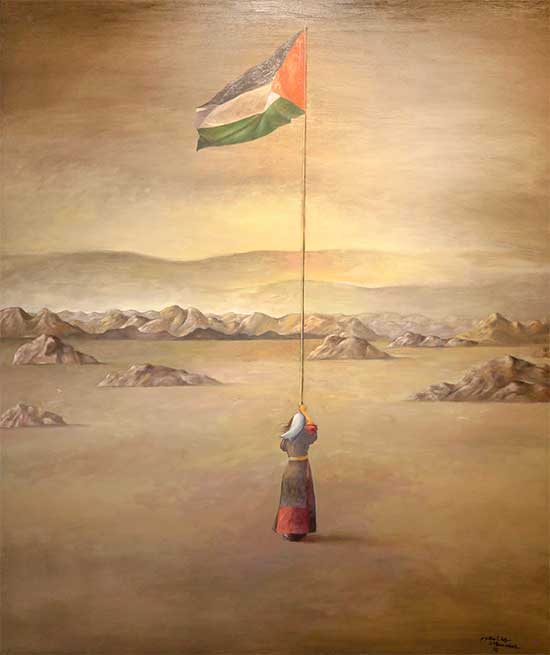
As some of you may know, I’ve written a song called My Name Is Palestine, (you can see it on youtube) which I am putting on a 12” vinyl single to be released very soon. The song was sparked off by a powerful and haunting painting by Palestinian artist Sulieman Mansour which I saw in Banksy's hotel in Bethlehem. With all that has been happening in Palestine and Israel, from Eurovision through to the rumours of Trump’s deal, it seemed important to make it available as soon as possible, and so we put it up on Youtube and later Facebook.
The response has amazed and particularly moved me. We are now at about 24,000 views on YouTube alone, and I felt it would be helpful to review exactly what is being said. The comments that have come in, both there and on Facebook, have been in the thousands. The views by the way on Facebook amount to a further 24,000. I will include some of the comments that have come in, below - they are moving, and give a real insight.
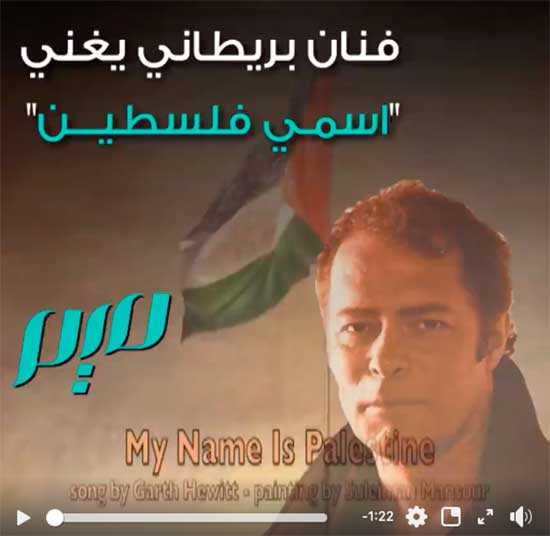
Now a video clip has appeared, made by a Palestinian magazine called Meem - it is a shortened version of the song with some powerful images. This has had over half a million views, it's currently at 560,000 with a whole variety of comments.
The Arabic in the film clip translates:
English artist sings “My Name is Palestine”in memory of 71 years of Nakba.
The English singer Garth Hewitt
releases a song entitled “My Name is Palestine”
This painting by the Palestinian artist Suliman Mansour
inspired the artist to write the song.
This is a noble solidarity movement
It’s not the first time that this international artist has called for justice for the Palestinians
He has already produced a book called Occupied Territories: the Revolution of Love from Bethlehem to the Ends of the Earth
"She's a symbol of a people that refuse to die
Says my name is Palestine and I will live" - words that carry a powerful message in resisting the occupation and insisting to live life and gain freedom
If you translate the Arabic under the film using the google-translate button, you will note that the singer is referred to as Gareth Hoyt! Later someone is explaining who I am and points out that I’m a Canadian Gospel singer!
As I say in my comments under the song, I asked Palestinian friends to tell me what Suleiman Mansour’s painting meant to them and they responded with all sorts of words that were very key to the atmosphere and lyrics of this song, and I think this has prompted the amazing response. The warmth of these responses on Youtube, Facebook and Meem has made me realise how rarely people speak up clearly for the Palestinian community – they feel forgotten and ignored.
I don’t always know where individual comments have come from, but mostly they have been from somewhere in Palestine, certainly many have come from Gaza, some from Palestinians in the West Bank, also some from Lebanon, Egypt, and recently we’ve had a comment from a Palestinian in Turkey.
I want to share with you a few comments that have come in and you will see the depth of feeling and response at this very difficult time for Palestinians:
Voices Crying Out...
"You are right in translating the painting into such a beautiful song. Through your beautiful voice the Palestinians do not feel alone and the democratic people of the world are grateful to you.”
"It's a relief, knowing that we have supporters from the other side of the occupational wall."
“We say to you that we are proud of you from the tiny street between the houses in Gaza strip and from the sound of the children when they are playing and screaming and the sounds of their mothers calling them - your voice comes there like the lines of the lights of the sun, full of hope and peace and love. We love you so much."
"We will never forget your song or anything you did for our cause... we love you sir... thank you."
"My child who was crying a lot because of the bombing, now sings your song. Love you and thank you and our gratitude..."
"May God bless you Sir. You are the voice of humanity..."
"This is amazing - many thanks Garth from a Palestinian. We will survive, we will remain with support from honest people like you."
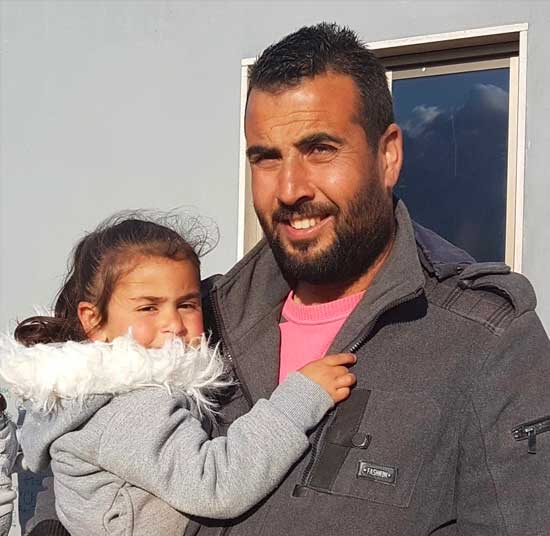
"The true core of art, this is how music brings us all together."
"Powerful words and wonderful sound. As a Palestinian I thank you for your support of our cause that they want to bury... Palestine will remain proud of the struggle of its people, with the honourable support of those like you."
"Thank you so much, and for every free person standing for justice and peace."
"Thank you Garth for standing by the voices of the oppressed. Great song and great voice... I just wish there more respected artists like you to advocate the rights of Palestine... and spread the news about the oppression all Palestinians are subjected to. Kudos to you for touching the hearts of thousands."
"Sometimes I hate living in Palestine due to how difficult it is to live here, but your song made me feel strong and deepened my love for my homeland."
"When injustice and humiliation become a reality and the whole world demands that we – Palestinians - accept that reality… and then, Sir, you come up with such a marvellous song... powerful words and sincere message just to tell us that we are not alone. And that no matter how that new reality is promoted, Palestine will never die and it will remain. Thanks from the bottom of each Palestinian's heart."
"A thank you from a Palestinian Artist - if you want an album cover just contact me!"
Don't silence the Prophets... or the forgotten
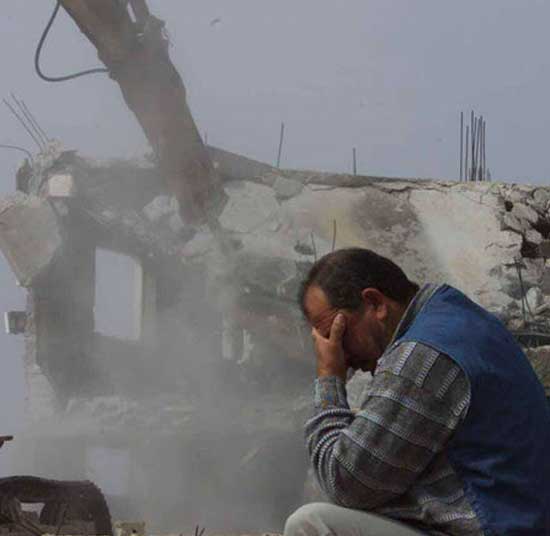
The pressure on the Palestinians is huge – there are imprisoned children held in Israeli jails, traumatised and alone. The speed of home demolitions has accelerated, in Jerusalem and in the West Bank. And the stranglehold of occupation gets tighter.
The pressures on Gaza are simply inhumane. Children are sometimes allowed out for medical treatment but their parents are not allowed to go with them.
And not only is the pressure hard on Palestinians but pressure can be put on people here if they speak up for Palestinians. We have to reject the ongoing racism against the Palestinians and speak loudly. The pressure for silence can even come from angles we don’t expect – for instance the Church. Jewish blog writer and Amos Trustee Robert Cohen has recently raised this issue in his latest blog The Church of England is stifling Palestinian solidarity – IHRA is to blame(click here to read it)
It is well worth keeping an eye on Robert’s blogs as he reflects a very thoughtful Jewish commitment to human rights and justice for all. In this latest blog he highlights the situation of long time Amos friend Jane Henson who has also worked at St George’s Anglican Cathedral in Jerusalem for both the Dean and the Bishop. She has a very clear insight on what is happening to the Palestinian people and yet has experienced silencing by the Church here of a very worrying nature.
There are moments that God calls us to prophecy - and if the Church won’t stand by prophets in those moments then who will? Interestingly Jane speaks of being able to talk more easily about the situation in Palestine to her friends not from the Christian community. Those who prophecy and get rejected by their own faith communities are what Jewish theologian Marc Ellis calls exiles. He calls us to link together with exiles from different faith communities
The Time Is Now
Sister Joan Chittister
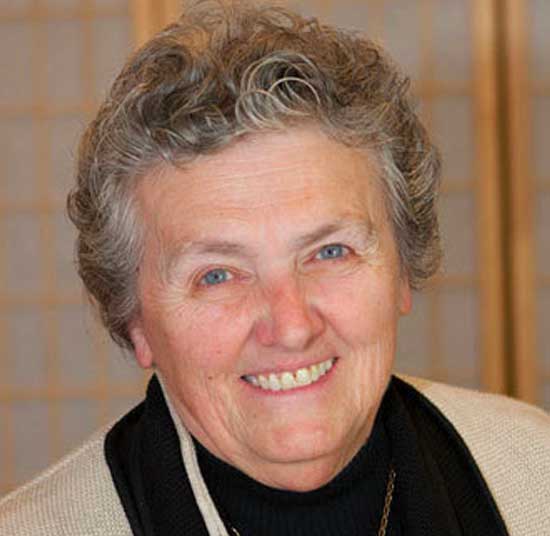
I bought a book this week by Sister Joan Chittister. She is a Benedictine Sister in Erie, Pennsylvania. She has had a significant impact on issues of peace and justice – Gill and I had the privilege of sharing Holy Week with the sisters at Erie one year and later we linked up with her again when she spoke at Greenbelt. Her book is called The time Is Now and it’s "a call to uncommon courage" - basically a call to prophecy.
She talks of the “...courage of people... that carries us through… to the emergence again of the humanisation of humanity." These people are "... the unsung but mighty voices of community... They are the prophets... who prod the rest of the world into seeing what it means to be fully alive… These... courageous people who forever seek the truth, defend the weak, bring the peace, and always, always, always stand up to protest injustice.”
She then dedicates her book to these prophets.
A reflection by Joan Chittister
“What does a prophet do? A prophet cries out, cries out, cries out without fear, without care for cost, without end. Dear prophet, for the sake of the children, for the sake of the world, for the sake of the gospel, cry out!”
Prayer
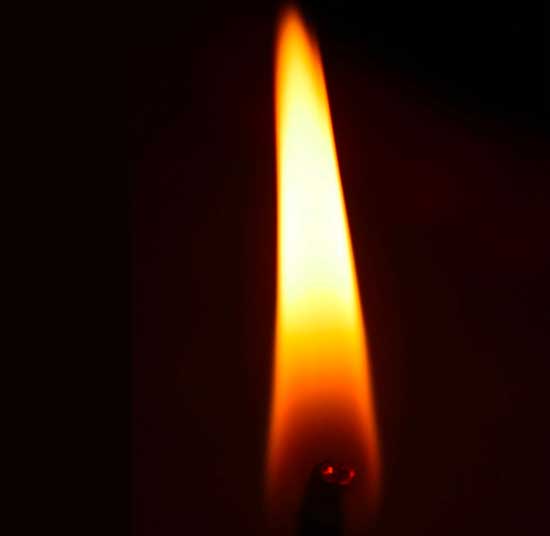
Generous and compassionate God
We pray for the people of Palestine
We pray for their children who are suffering
We pray for so many of their people who are in prison
We pray for them as they suffer under occupation and seige
We pray that there will be justice in peacemaking
And we pray that we will not be silent
So that the Palestinians find hope again
And find a road to justice
And may we be unafraid to speak up for them
Unafraid to prophecy
We pray there will be a road of hope that cuts through the desert of despair
That brings a new dawn
For Palestinian and Israeli
A road in the desert that brings equality
A road in the desert for human rights
A road in the desert for freedom for all
So no more second class citizens -
No more racism, no more stealing of land -
But equality, equality, equality -
Because all are made in the image of the God
Who will not accept the mistreatment of anyone
Who says love your neighbour as yourself
This is the way out of despair
Amen
